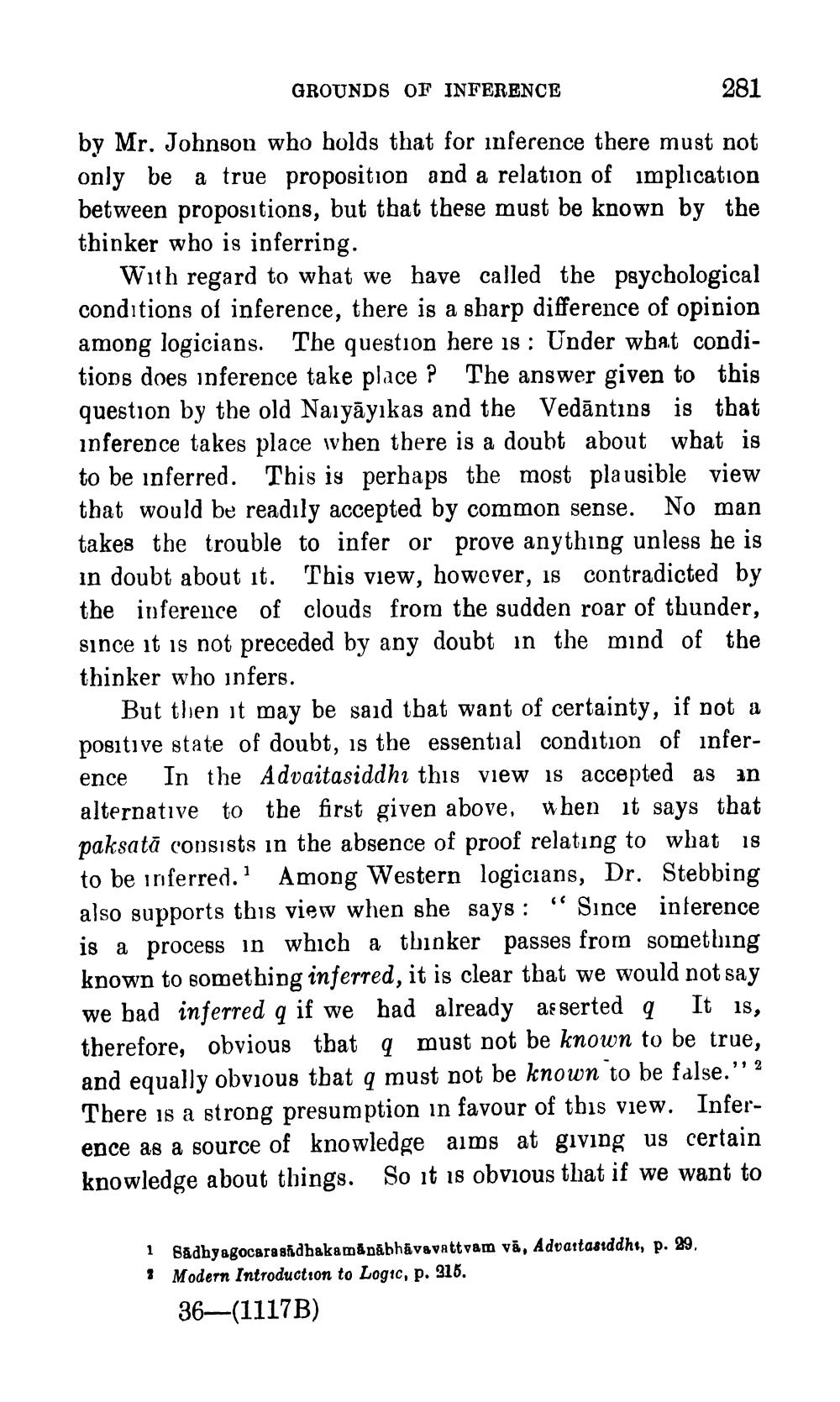________________
GROUNDS OF INFERENCE
281
by Mr. Johnson who holds that for inference there must not only be a true proposition and a relation of implication between propositions, but that these must be known by the thinker who is inferring.
With regard to what we have called the psychological conditions of inference, there is a sharp difference of opinion among logicians. The question here is : Under wbat conditions does inference take place ? The answer given to this question by the old Naiyāyıkas and the Vedāntins is that inference takes place when there is a doubt about what is to be inferred. This is perhaps the most plausible view that would be readily accepted by common sense. No man takes the trouble to infer or prove anything unless he is in doubt about it. This view, however, is contradicted by the inference of clouds from the sudden roar of thunder, since it is not preceded by any doubt in the mind of the thinker who infers.
But then it may be said that want of certainty, if not a positive state of doubt, is the essential condition of inference In the Advaitasiddhi this view is accepted as in alternative to the first given above, when it says that paksatā consists in the absence of proof relating to what is to be inferred.' Among Western logicians, Dr. Stebbing also supports this view when she says : “ Since interence is a process in which a tbınker passes from something known to something inferred, it is clear that we would not say we bad inferred q if we had already asserted q It is, therefore, obvious that I must not be known to be true, and equally obvious that q must not be known to be false."' 2 There is a strong presumption in favour of this view. Inference as a source of knowledge aims at giving us certain knowledge about things. So it is obvious that if we want to
1 Bådhyagocarasidhakamānābhāvavattvam vā, Advartasıddhe, p. 29. ; Modern Introductron to Logic, p. 216.
36—(1117B)




